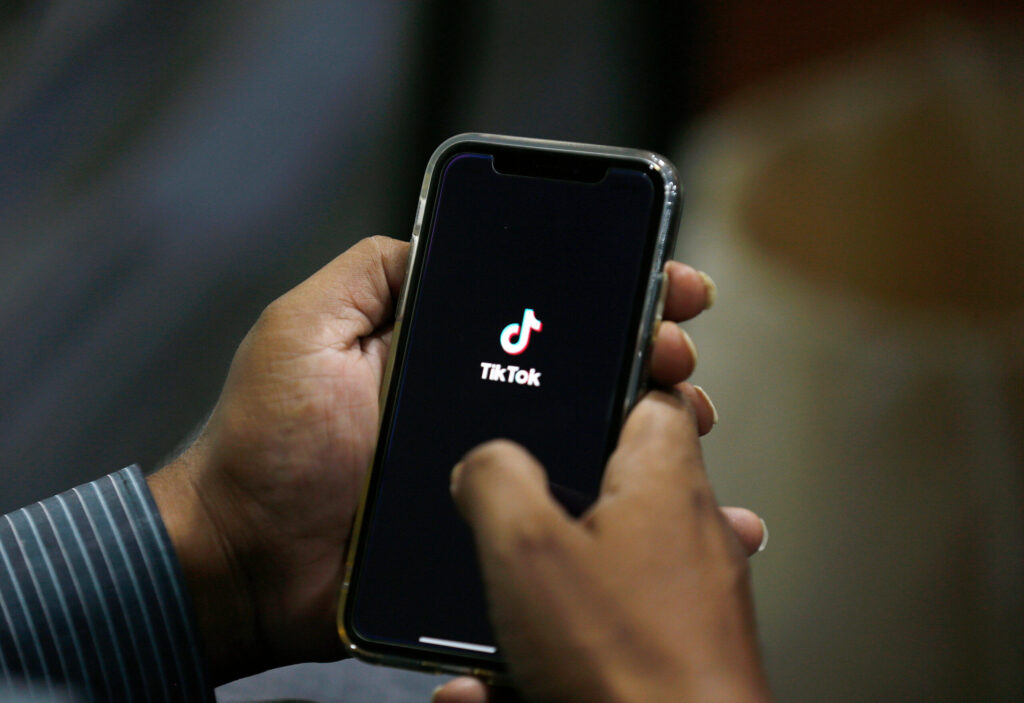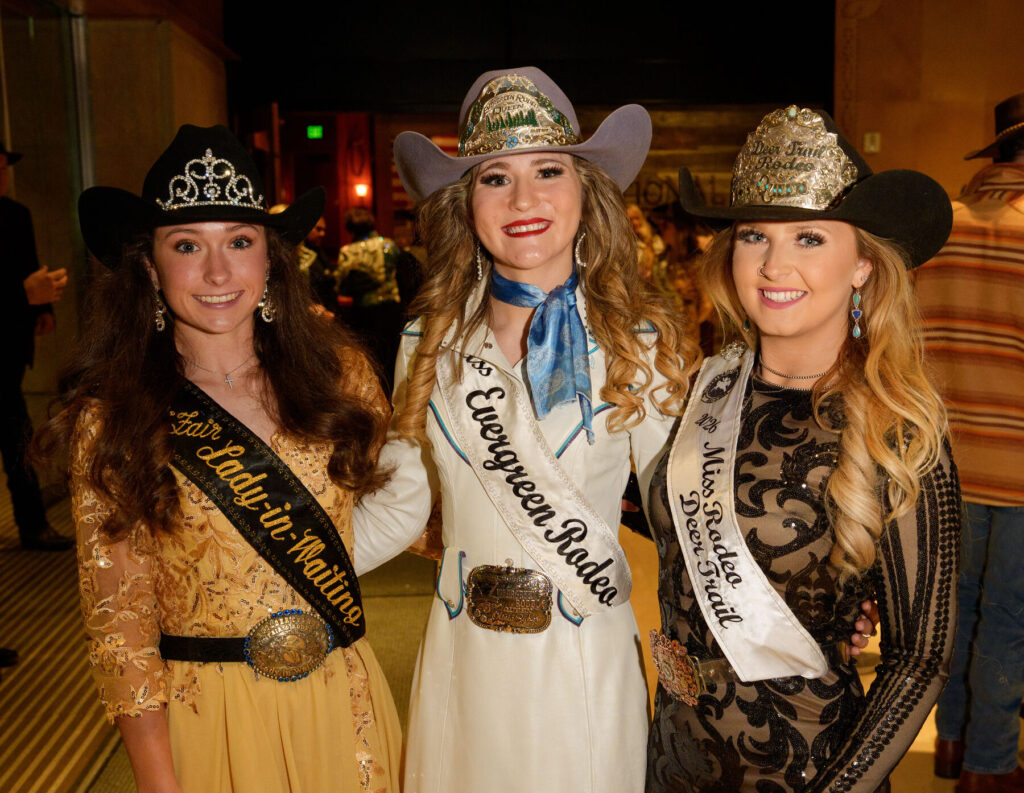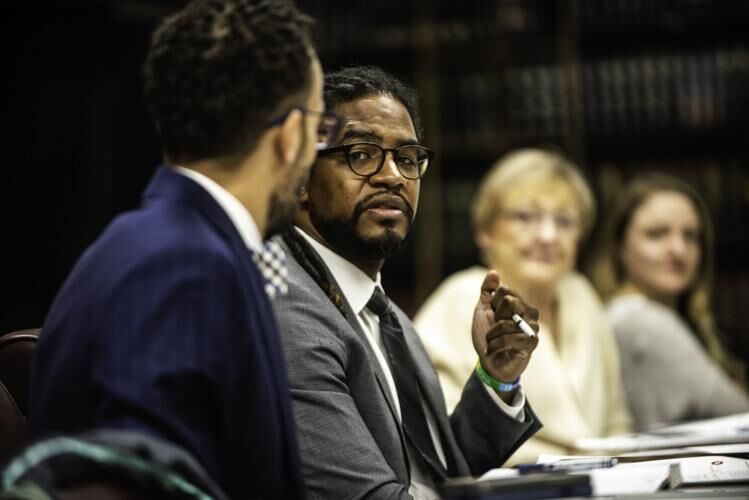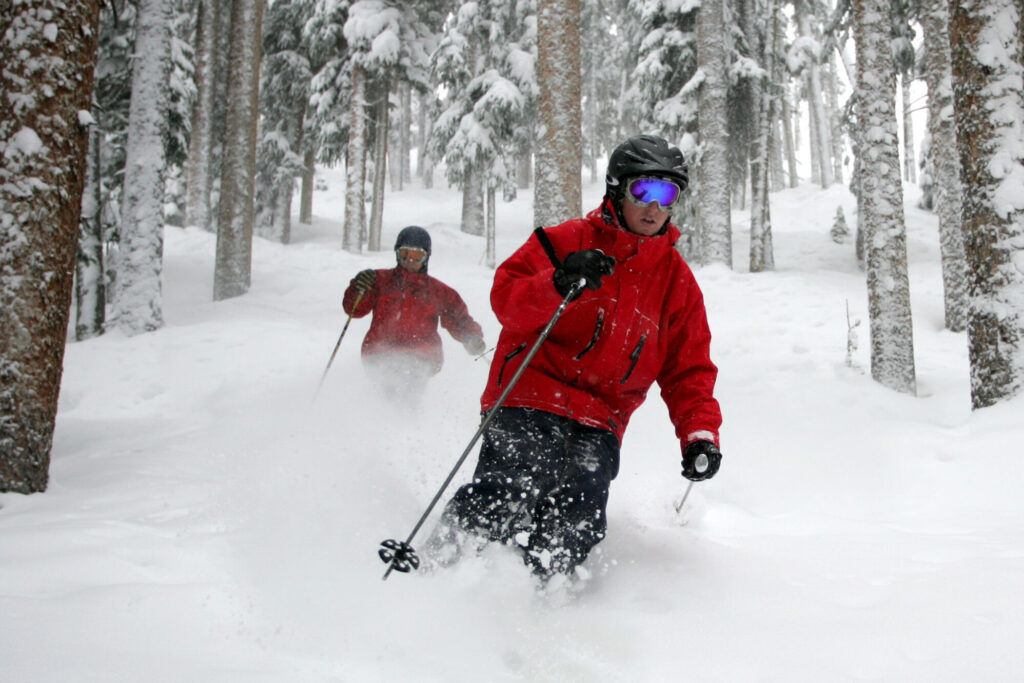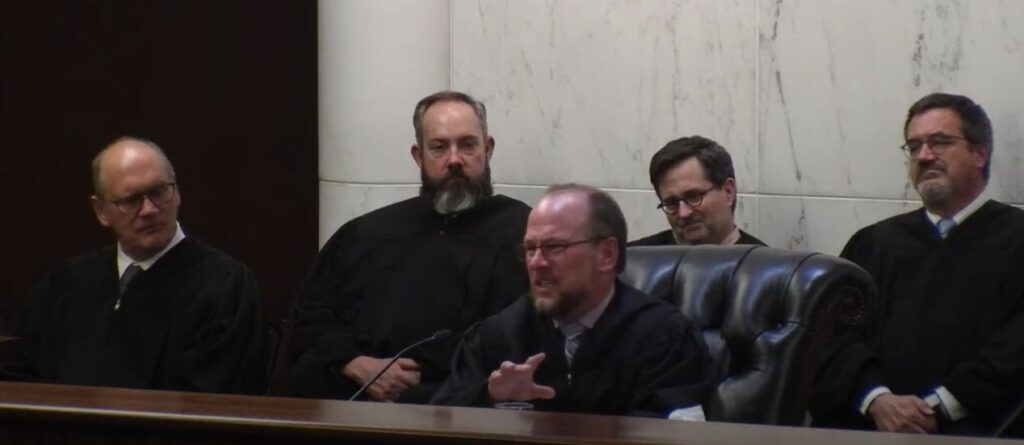Volunteers help seedlings take root in attempts to recover from historic wildfire | OUT WEST ROUNDUP
NEW MEXICO
Volunteers help plant seedlings after wildfire
A small team of volunteers spent a few hours scrambling across fire-ravaged mountainsides near Mora on Sept. 21, planting hundreds of seedlings as part of a monumental recovery effort that has been ongoing following the largest wildfire in New Mexico’s recorded history.
The Hermit’s Peak/Calf Canyon blaze was spawned in 2022 by a pair of botched prescribed burns that federal forest managers intended to lessen the threat of catastrophic fire. Instead, large swaths of northern New Mexico were reduced to ash and rural communities were upended.
“The planting was so easy that we got done a little early and ran out of trees to plant that day. So it was a good day,” said David Hernandez, a stewardship ecologist with The Nature Conservancy, which is partnering with the Hermit’s Peak Watershed Alliance on the project.
CSU study on wildfire's effects on snowpack finds it's about location, location, location
Nearly 400 ponderosa pine seedlings were placed in spots identified by the U.S. Forest Service as high priorities, given the severity of the burn, mostly areas where not a single live tree was left standing.
The Nature Conservancy used donations to purchase a total of 5,000 seedlings. New Mexico Highlands University is contributing another 3,500 seedlings.
There have been days when 20 volunteers have been able to plant around 1,000 trees, said Joseph Casedy, who works with alliance.
NORTH DAKOTA
Judge strikes down state’s abortion ban
BISMARCK — A state judge struck down North Dakota’s abortion ban on Sept. 12, declaring that broad guarantees of personal liberty in the constitution of his conservative, Republican-dominated state create a fundamental right to abortion before a fetus is viable.
The state’s GOP attorney general promised to appeal the decision, which would take effect within a few weeks. North Dakota no longer has any abortion clinics, but legalizing abortion again would affect doctors in hospitals who believe an abortion is necessary when a pregnant patient faces a medical emergency.
Besides ruling that the state constitution protects abortion access, District Judge Bruce Romanick also said that the law is unconstitutional because it is too vague to be enforced fairly. He agreed with critics who said the law wasn’t clear how its limited exceptions applied — allowing doctors to be prosecuted if other colleagues later disagreed with their medical decisions.
North Dakota Attorney General Drew Wrigley said in a statement that the judge’s decision contained “flaws in his analysis” and ignores previous North Dakota Supreme Court cases.
North Dakota’s only abortion provider had been the Red River Women’s Clinic in Fargo, but it moved a few miles to Moorhead, Minnesota, after the U.S. Supreme Court’s 2022 Dobbs decision, when a state “trigger” law banning abortion took effect. The clinic sued, as did several doctors in obstetrics, gynecology and maternal-fetal medicine.
In 2023, North Dakota’s Republican-controlled Legislature revised the state’s abortion laws, making abortion legal in pregnancies caused by rape or incest, but only in the first six weeks of pregnancy. Under the revised law, abortion was allowed later in pregnancy only in specific medical emergencies.
In his ruling, Romanick cited how the North Dakota Constitution guarantees “inalienable rights”that in turn protect women’s personal autonomy and their ability to make medical decisions and “ultimately control (their) own destiny.”
MONTANA
Court agrees clinic submitted false asbestos claims
BILLINGS — A federal appeals court has upheld a lower court determination that a Montana health clinic submitted hundreds of false asbestos claims on behalf of patients.
A jury decided last year that the clinic in a town where hundreds of people have died from asbestos exposure submitted more than 300 false asbestos claims that made patients eligible for Medicare and other benefits they shouldn’t have received.
The Center for Asbestos Related Disease (CARD) in Libby, Montana, had asked the 9th Circuit Court of Appeals to reverse last year’s ruling. The clinic’s attorney argued its actions were deemed acceptable by federal officials and that the judge in the case issued erroneous jury instructions.
But a three-judge panel said in a decision issued late on Sept. 24 that the clinic couldn’t blame federal officials for its failure to follow the law. The panel also said that Judge Dana Christensen’s jury instructions were appropriate.
Martin Drake Power Plant demolition underway, study of 'once-in-a-century opportunity' takes shape
The clinic has received more than $20 million in federal funding and certified more than 3,400 people with asbestos-related disease, according to court documents. Most of the patients for whom false claims were made did not have a diagnosis of asbestos-related disease that was confirmed by a radiologist, the 9th Circuit said.
The case resulted from a lawsuit brought against the clinic by BNSF Railway. The railroad has separately been found liable over contamination in Libby and is a defendant in hundreds of asbestos-related lawsuits, according to court filing
WYOMING
Bill would allow national betting on horse racing
CHEYENNE — Wyoming-based operators may be able to get a permit that would allow national simulcast horse racing, according to a proposed bill draft that was discussed by lawmakers on Sept. 27.
Seven bill drafts related to pari-mutuel wagering and historic horse racing were on the table for discussion during the Legislature’s Joint Appropriations Committee meeting.
Rep. Tom Walters, R-Casper, who chairs the working group, told the Wyoming Tribune Eagle he was most excited about bill draft 232, “Interstate export of Wyoming horseracing.”
The bill essentially would allow a Wyoming-based operator to get a permit to simulcast live horse racing nationwide, Walters said, and possibly worldwide.
Denver mayor Mike Johnston wagers with Dallas Mayor on Avalanche's success in NHL playoffs
This bill would enable people out of state to wager on Wyoming horse races, he added, which could bring in money to the Cowboy State.
Wyoming Gaming Commission Deputy Director Nick Larramendy previously told the WTE it costs operators between $2 million and $3 million to run a 16-day horse racing event — not enough for the track to make money.
Legislative approval of historic horse racing (HHR) machines in 2013 helped remedy this issue, he said. HHR terminals are allowed to run all year long, and operators use the proceeds from these terminals to pay for live horse races.
Gambling quickly fanned into a billion-dollar industry in Wyoming, with the legalization of HHR machines, online sports wagering and charitable gaming. This year, lawmakers decided it’s time to step in to see if and where further legislative regulation is necessary.


